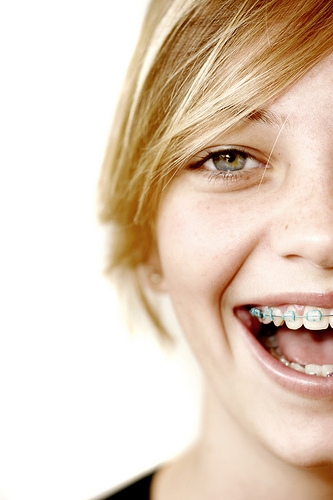July 10th, 2024

Two-phase orthodontic treatment involves two separate and distinct periods that your child receives orthodontic treatment. It allows your son or daughter to begin early treatment of bite and jaw problems, in order to reduce the dental issues he or she experiences later on.
Two-phase orthodontic treatment with Dr. Neil Oliveira and Dr. Derek Wolkowicz can improve how well the second phase of the treatment works and helps to make room for permanent teeth. Overall, two-phase treatment helps to position the teeth and the jaw for an attractive profile. Our team at Orthodontic Specialists of Southeastern Massachusetts recommends that you bring your child to our New Bedford or Mattapoisett, MA office at the age of seven or eight, so that Dr. Neil Oliveira and Dr. Derek Wolkowicz can determine if early (Phase-One) treatment is necessary.
Phase-One
Phase-One orthodontic treatment is known as early treatment. It begins shortly after your child’s first orthodontic examination, usually around age eight or nine. The main goal of Phase-One orthodontic treatment is to help make room for permanent teeth, which reduces crooked teeth as a result of overcrowding. It treats the jaw and bite growth, and issues like crossbite or underbite. This can reduce the need for your child to undergo extractions.
Phase-Two
Phase-Two orthodontic treatment is when braces are placed on the upper and/or lower teeth. The purpose is not just to correct spaces or misaligned teeth, but also to correct overbite or underbite concerns. Phase-Two usually begins around age 11 or 12, and the braces are worn for an average of two to three years, depending on your child’s unique needs. Some children have fewer issues and wear braces for little more than a year, while others need them for up to four years.
Signs your child needs two-phase orthodontic treatment
If your child exhibits the following signs, he or she may be a good candidate for two-phase orthodontic treatment:
- Losing baby teeth early, before five years of age
- Problems with biting or chewing
- Sucking the thumb after age five
- Evidence of a crossbite, where the teeth don’t come together when opening or closing of the mouth
- Teeth are crowded at age seven or eight
- Protruding teeth on the top or bottom
Not all children need to have early treatment, but if your child shows any of these signs, you should bring him or her to us for an evaluation at Orthodontic Specialists of Southeastern Massachusetts.
July 3rd, 2024

Happy Independence Day from Dr. Neil Oliveira and Dr. Derek Wolkowicz and team! The Fourth of July celebrations in America may have changed a lot over the years, but there is no doubt that we Americans love to celebrate the anniversary of our country's independence! Today we're devoting the Orthodontic Specialists of Southeastern Massachusetts blog to some fun facts about the Fourth!
- My, how we have grown! This year the United States Census Bureau estimates that our country has 313.9 million residents celebrating the Fourth of July this year, but back in 1776 there were just 2.5 million members of the country.
- Our country loves to show how proud that we are of our independence. Did you know that there are 31 United States places with the word “Liberty” in their names? The state of Iowa actually has four towns with the word Liberty in the name: Libertyville, New Liberty, North Liberty, and West Liberty.
- The United States loves Fourth of July food! It is expected that around 150 million hot dogs are eaten on the Fourth each year. One of the Fourth's most popular sides, potato salad, goes just perfectly with the hotdogs and hamburgers that are standard Fourth of July fare. Some people choose potato chips instead, but we wouldn't have such a plethora of potatoes if not for the prodigious production of the states of Idaho and Washington -- they provide about half of all the potatoes in the United States today!
- Americans love celebrating the Fourth outdoors: About 74 million Americans fire up their BBQ grill every Fourth of July.
- The Chinese contribution: Did you know that Americans have spent more than $211 million on fireworks that were imported from China?
No matter how your family chooses to celebrate the Fourth, stay safe, take precautions, and don't forget to brush after your fabulous Fourth feast!
June 26th, 2024

Everyone wants a naturally aligned and beautiful smile, and it is no secret that orthodontic braces from Orthodontic Specialists of Southeastern Massachusetts can help deliver one. However, there are greater benefits to wearing braces than just having straight teeth. You’ll gain many oral health benefits in addition to the cosmetic ones.
Tooth Decay and Gum Disease
Crooked or crowded teeth may overlap each other and create tight spaces in between. These can make it very difficult to brush and floss effectively, allowing bacteria and plaque to build up, and eventually leading to tooth decay and gum disease. With orthodontic treatment, your teeth will become properly aligned and spaced, which allows for more effective brushing.
Difficulties with Speech
Your teeth play an essential role in speech. When they are out of line or lean too far forward or backward, this can affect your speaking patterns, and possibly cause embarrassment and frustration. Braces can readjust the positioning of the teeth to allow for clearer, more professional speech.
Bone Erosion
Bone and gum tissues begin to erode when there are no teeth to support. This is also true for poorly aligned teeth that leave gaps and spaces or place too much pressure on the jawbone due to a bad bite. With braces, the bones and tissues are less likely to erode and can continue to support the teeth in their new alignment.
Digestion
Your teeth play an important role in digestion. Before food ever enters your stomach, it has been partially digested by the teeth. If teeth are severely out of line, however, they may not play their role in breaking down food as effectively as they should. With braces, your teeth will be straightened into optimal alignment for eating and chewing.
Dr. Neil Oliveira and Dr. Derek Wolkowicz and staff will be happy to answer any of your questions about your orthodontic treatment. Visit us in New Bedford or Mattapoisett, MA today!
June 19th, 2024

It's the big day and your braces are finally coming off! Does that mean you are completely done? Not so fast! After you complete your treatment here at Orthodontic Specialists of Southeastern Massachusetts, Dr. Neil Oliveira and Dr. Derek Wolkowicz and our team will recommend you wear a retainer, which must be worn routinely after treatment in order to hold your teeth in their proper, new position while your gums, ligaments and bones adapt. Most patients are required to wear their retainer every night at first, with many also being directed to wear them during the day. It's important to know there are different kinds of retainers, and today we thought we would explain the differences between them.
Hawley Retainers
The Hawley retainer is one of the most common types of retainers. It is a removable retainer made of a combination of a metal wire that typically surrounds the six anterior teeth and is designed to keep your teeth in place. This retainer is made from impressions of your teeth so that it fits snugly and comfortably in the roof of your mouth, while the wire and acrylic framing keeps your teeth in an ideal position. The acrylic can also be personalized with a large number of colors or patterns.
Essix (Clear) Retainers
The Essix retainer is a transparent removable retainer that fits over the entire arch of your teeth. This clear or transparent retainer fits over the entire arch of teeth and is produced from a mold. Similar to Invisalign’s clear aligner trays, Essix retainers have no metal or wires. They can also be used to produce minor tooth movements and can be helpful in prevention of tooth wear due to tooth grinding at night.
Bonded Retainers
Bonded lingual retainers are cemented directly to the inside surface of your lower canines. Dr. Neil Oliveira and Dr. Derek Wolkowicz and our team at Orthodontic Specialists of Southeastern Massachusetts encourage our patients with bonded lingual retainers to be careful with their bite as the bonding material may break due to incorrect biting and cause your teeth to shift. As with removable retainers, it is important to keep your bonded retainers clean. When brushing, make sure to carefully clean the inside of your lower teeth, as well as the wire itself.
The retention phase of treatment begins when the patient’s braces are removed. Retainers are worn full time, typically for the first nine months, except while eating. Retainers should also be removed before brushing your teeth.
If you have any questions about the retainers we offer or to learn more about post-orthodontic treatment, please feel free to contact us at our convenient New Bedford or Mattapoisett, MA office and we will be happy to answer any of your questions!




